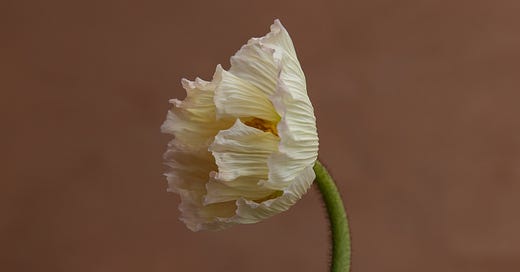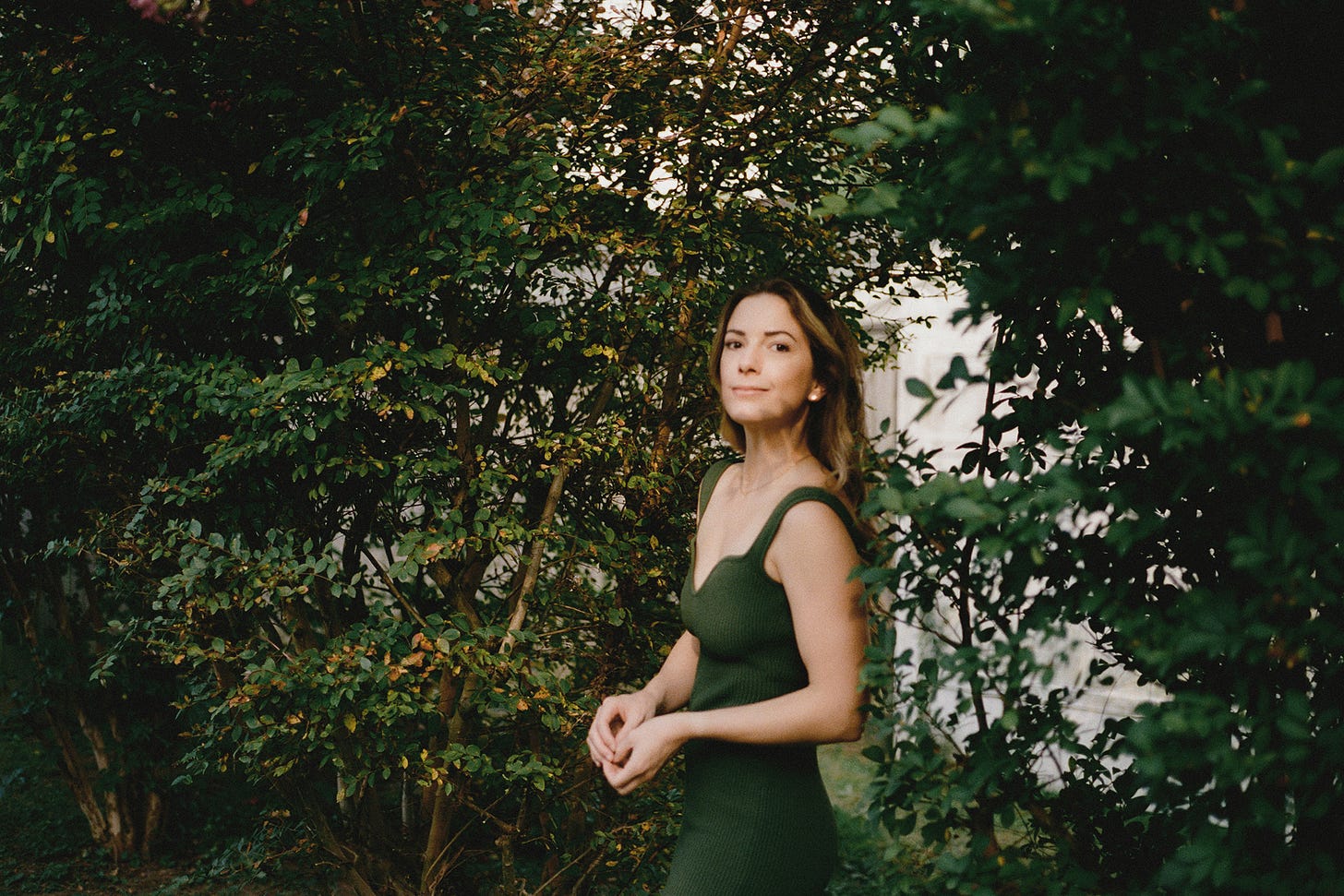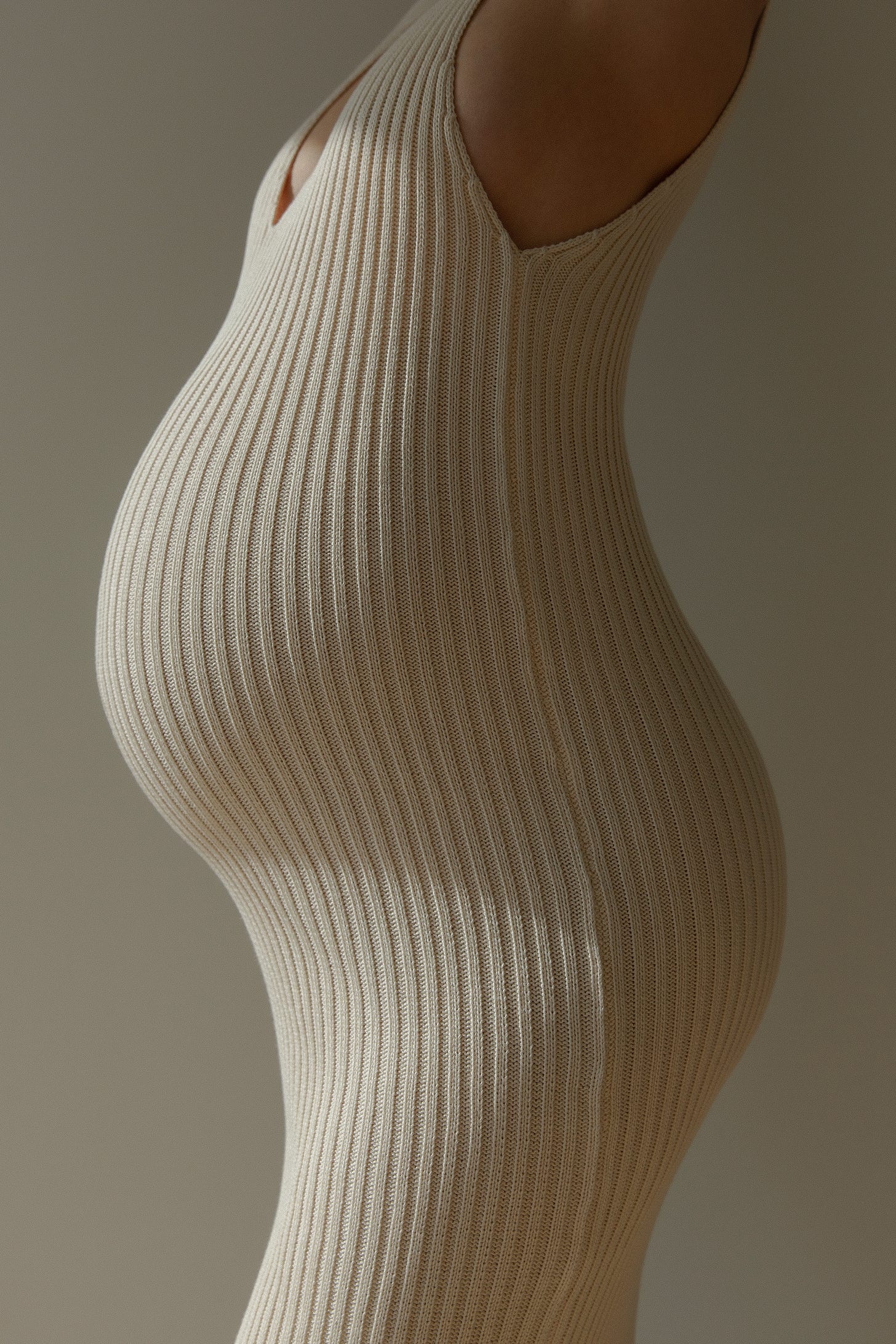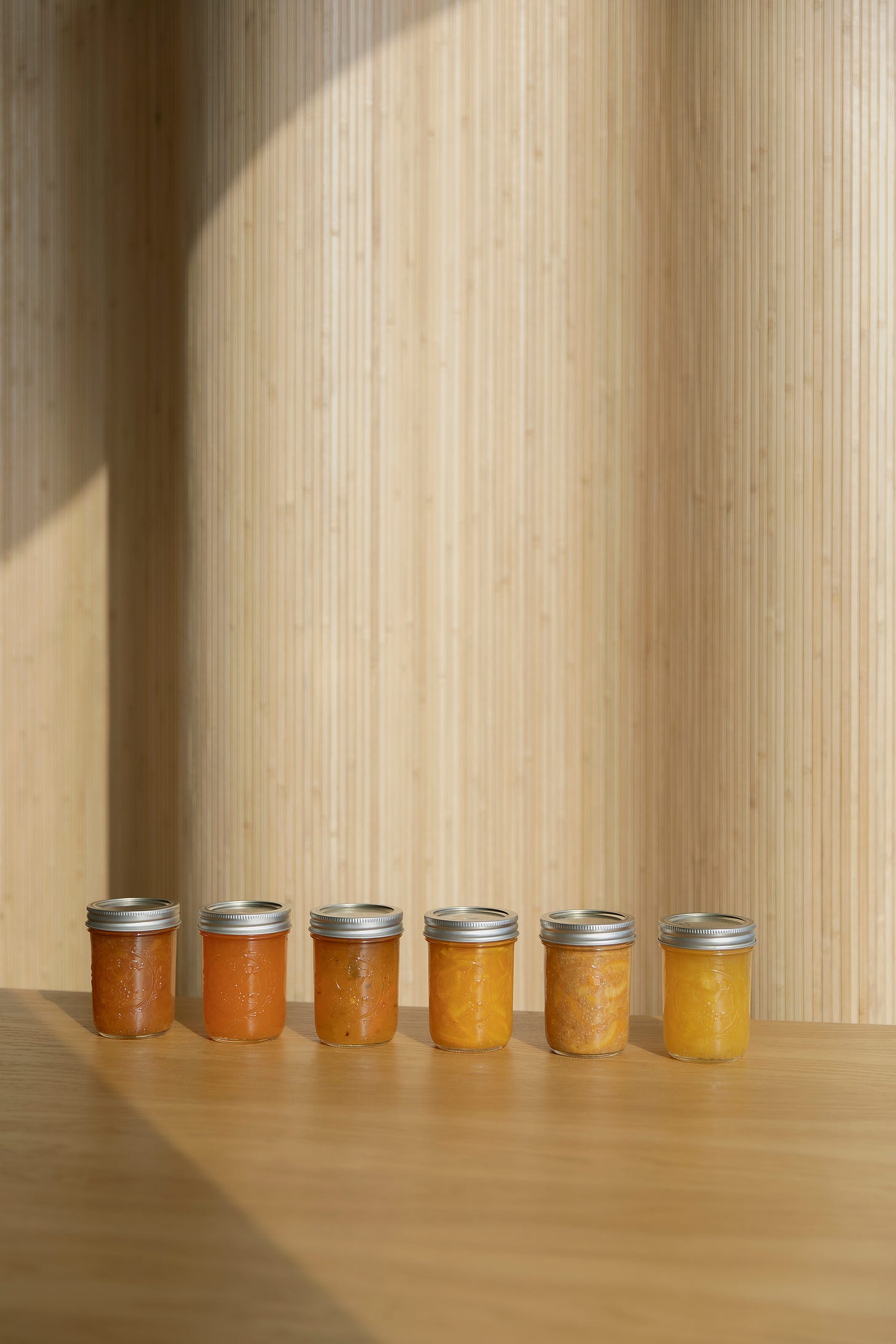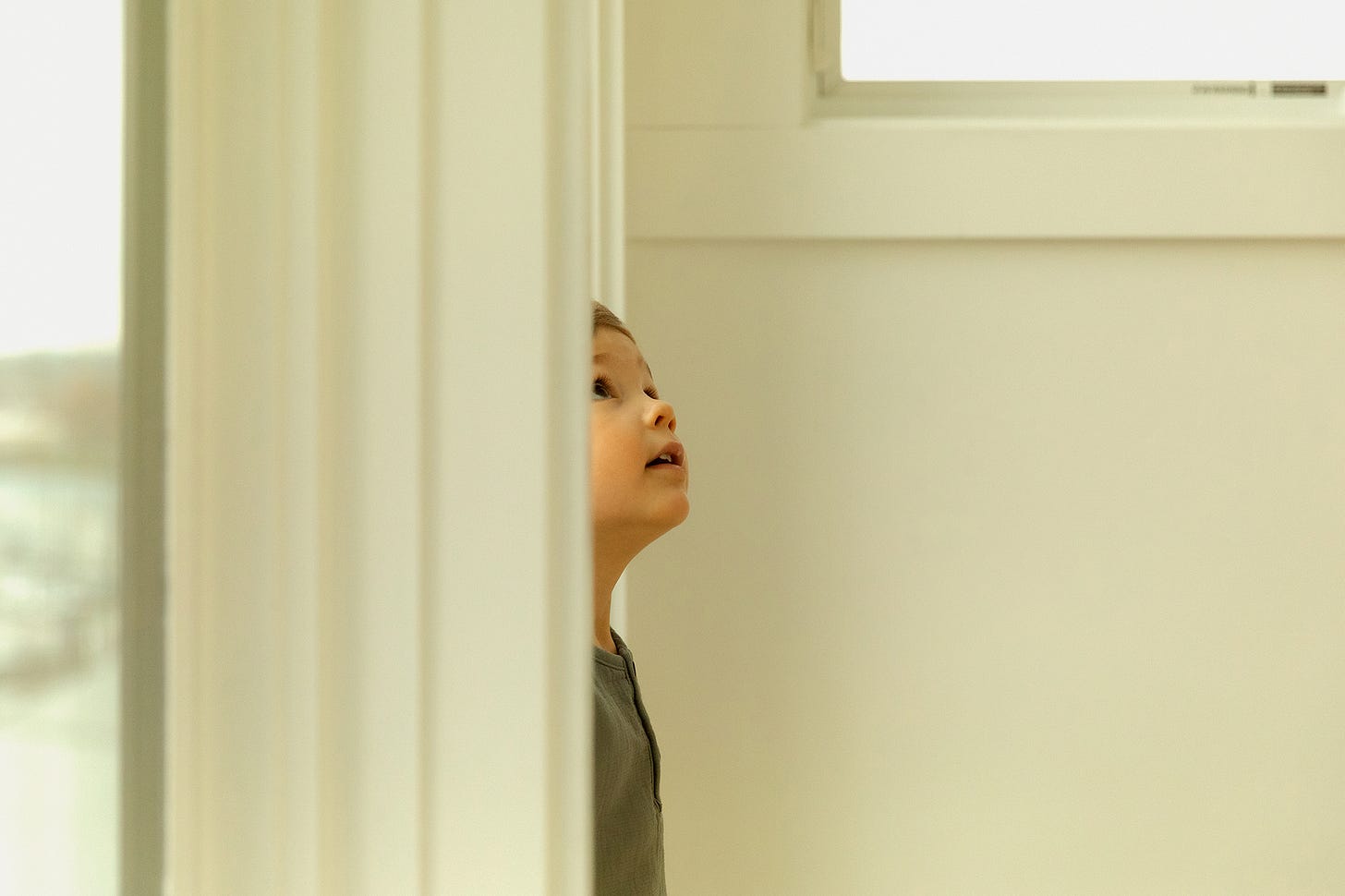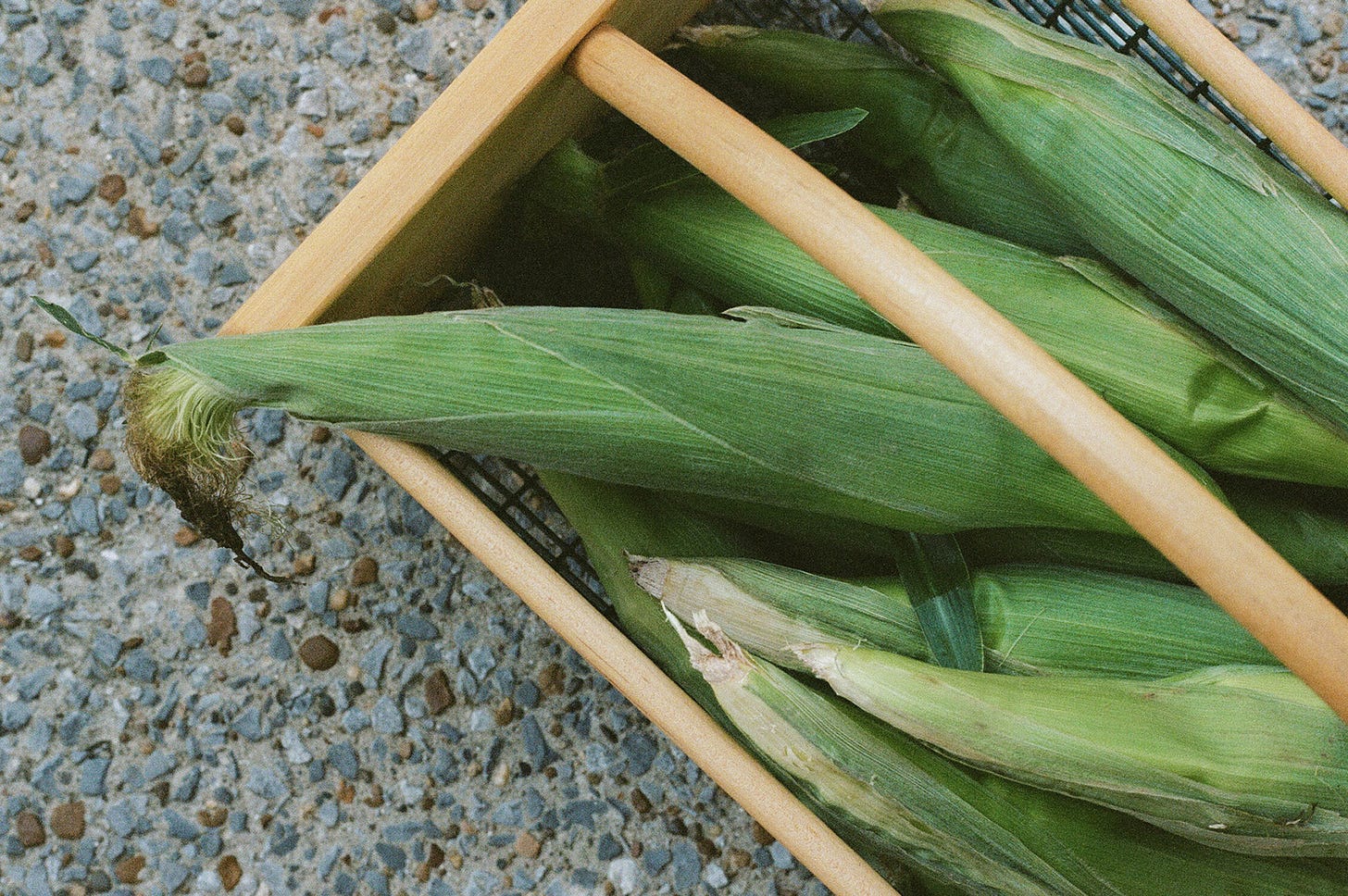I’ve had the great pleasure of knowing Chelsea J. O’Leary for ten years, both as a colleague and close friend. My new bimonthly series, titled Still Life, refers to the notion of “stillness” — quieting the noise and seeking to capture a glimpse into this very moment in time. On the precipice of her book release, The Wiley Canning Company Cookbook, we discuss dreams, identity and the power of nature.
Transcribed, briefly edited and condensed from our conversation on March 15, 2023.
Chelsea: I had farm school with my son this morning, and on my drive home I was thinking about this call and envisioning us sitting at the bar at Cafe Roze to have this conversation, so that’s where I am in my head.
Elise: Ah, the dream! We have so many good memories there together. We can be there in spirit!
Chelsea: Yes, in spirit. It’s late afternoon, we’re sitting at the bar, there aren’t many people there. We are just talking about what we would discuss anyway — all of these really beautiful life themes.
Elise: I’m so excited about this, and to launch the new series with you. More than anything, my intention is for this to be a meaningful, connective and honest conversation. If we don’t get to all, or any, of the questions I sent you ahead of time, that is totally fine by me. I want to allow natural rhythm and flow to take us any direction.
Chelsea: I love that, me too. I decided to think through some of your questions ahead of time, but not to write down my thoughts. I think I would have felt married to the sentences I wrote down. I did allow myself to trail off in thought, but also wanted this to feel like a natural conversation, so that’s what I’m allowing it to be!
Elise: Well thank you. I’m curious, did any questions in particular jump out at you?
Chelsea: There was one theme that jumped out at me, because it’s something that happened recently and is so fresh on my mind. It’s given me a lot of energy and empowerment. You asked if I had had any recurring dreams as of late, and while this one wasn’t recurring, what came to mind for me was this dream I had. You do not have to include this — it’s not necessarily, um… okay I’m just going to tell you what it was.
Elise: Now I’m dying to know!
Chelsea: The dream was very short. I awoke in the middle of the night, went into my bathroom and just started pulling tampon after tampon out of my vagina.
Elise: Whoa, haha.
Chelsea: In the dream, that’s all it was. Like a 30-second occurrence where I just look down and think, oh, I need to change my tampon. I pull one out and then I discover there’s another one. And another one. And another one. And it didn’t end by the time I woke up. Afterwards, I kept thinking, what in the world? What is going on in my subconscious mind that caused such a dream? I thought about why we use tampons, and what purpose they serve. I realized that I am in this moment of my life where I have so much desire, and I feel so feminine and powerful, and for lack of a better word — very juicy.
I feel like it was this graphic reminder to let that femininity come through, to let that power come through, to let this newfound juiciness and sexuality come through. Not even sexuality toward my partner, Jared, in a conventional sense. It’s more like this attractiveness and desire toward the world, my work, my friendships and my marriage. I’ve been trying to tame it, and to kind of clog that desire because I don’t want to take up too much space or be too loud, or be too “in the light” or whatever. This dream was my reminder to remove the clogs, get the tampons out, and just allow myself to be powerful and feminine and… juicy. Haha, I know that is a weird adjective but it’s just the word that comes to mind.
Elise: I love that so much. Who knew that a dream about tampons could feel so symbolic and beautiful? Haha. It just feels so aligned with where you are in life right now, as you’re about to “give birth” in a sense to this cookbook, and you also became a mother recently. It makes me really excited for you and seems like serendipitous timing.
Chelsea: Yeah, I feel like I want to really live in this season of — like you said — birth. I’m birthing this book that’s been incubating for over two years. A part of me feels this really intense shyness, like it isn’t a big deal, and a part of me is like no, this is a big deal. I want to live in that and take it all in. I’m trying to very consciously feel that pride and bigness around the book release.
Elise: Do you remember how you felt in the actual dream? Were you confused or scared?
Chelsea: I felt afraid because it felt so literal and visceral. I remember thinking did I get them all out?
Elise: Haha! That is intense.
Chelsea: It has really stuck with me. It wasn’t until I started talking about it, and not necessarily trying to interpret it, but trying to glean something from it, that I realized what really resonated was this: It is time to remove the boundaries, barriers and stigmas and be fully in my body and fully in my work. To own this wave of momentum that I’m feeling because it will naturally come to an end. I’m giving myself to permission to live big and allow these juices and feelings of desire to really flow right now.
Elise: It naturally ends in order to give way to something new, which kind of leads into my question around identity: What’s one way you identify yourself now that you wouldn’t have expected?
Chelsea: I’ve been thinking a lot about this in the last few years, and only recently allowed myself to identify as a writer. I have made this differentiation between how I identify and how others identify me. They don’t have to be the same.
Whether I’m publishing books or writing private essays, writing is something I have to do. It feels like a non-negotiable. Writing really allows me to access a part of my mind that nothing else can. I think the same is true for my photography and food preservation. For the longest time I asked myself: Do others see me as a writer? Do others see me as a photographer? At the end of the day, it’s none of my business because that’s their own interpretation of my work. I know that these things allow me to feel the most myself, so therefore I identify as these things. It wasn’t until I was well into the book writing process that I allowed myself to say, I’m a writer.
Elise: You are a writer, and now a published one at that! I’m so proud of you. I connect to those words so much. This past year I’ve really leaned into the writing side of myself that I never took too seriously before. This is so cheesy — but just last week I added “writing” to my Instagram bio. Writing is a big part of me, how I spend my time right now and a way I find deeper meaning and purpose. My imposter syndrome felt too scared to say “writer,” so I stuck with “writing” for now, haha. It’s definitely hard not to think about how others identify you or if they’ll agree or not. Did you grow up writing, journaling, shooting photos and the like?
Chelsea: I knew there was something there in high school, because in my senior English class, we had to write one essay a week. The teacher was infamous for this because writing an essay each week was a ton of work, especially as a high school student. I realized in his class that you have to write often to get anywhere. Even if the essay is total crap, it doesn’t matter. It opens something. I learned that year about the value of writing consistently. Don’t wait to be in a certain mood to write or produce. I always had so many thoughts and experiences in my head but wasn’t sure where to put them. My teacher showed me how to construct these thoughts into essay form, helping me process an experience even further, and that value has never left me.
Elise: Would you say you’re more of an internal processor or an outward processor?
Chelsea: Definitely outward. I often have to get something onto paper to know how I feel about it. This is true for so many things in my life, but for example, if I’m upset with Jared about something, I will write down what happened and it’s very disarming. Like oh okay, now that I see it on paper, it didn’t escalate like I thought it did in my head.
Even when I was in the depths of my postpartum anxiety and overwhelm, I would think something as horrible as why did I do this? Why did I get pregnant? Writing it down disarms that energy.
Elise: Yes, and it acknowledges it so that you aren’t suppressing or letting it fester. Once you get it out, you can begin to process and move forward.
Chelsea: Exactly. It can put a thought or idea into perspective very quickly. Get it out of your mind and onto paper, then you can study and reflect on the experience.
Elise: Do you often go back to reread things you wrote in previous seasons of life?
Chelsea: I do. What’s so fascinating is that I never feel the same way as I did when I wrote it. When I was putting thoughts into my Notes app postpartum, I felt guilty to have so much grief in those first few months of motherhood. I go back now and think, those feelings are common!
I remember being so ashamed when I submitted the first draft of my book, because I thought the essays were horrible. I went back to start editing and realized they weren’t that bad! I don’t know why I was so hard on myself. Our thoughts can feel so charged at first.
Elise: Totally. We are always bringing our own invented stories to the table, and revisiting it later can strip away some of that emotion and charge, and help us see things more clearly.
Chelsea: Often something wasn’t as bad — or as good — as we thought! The poet Ocean Vuong encourages writers to write it down and then walk away from it for weeks, or even months. Give it objective time and space, and don’t edit yourself in the moment.
Elise: You talking about high school made me think about your younger self. What would your high school friends, teacher or even teenage Chelsea find surprising to learn about you now?
Chelsea: Haha, oh my gosh. It’s kind of muddled in my head. Sometimes I wish I could have told that person what her life would become. To say “here is a picture of your life at 32 years old” and watch her take a huge sigh of relief.
That young lady was uptight and self conscious and wanted to please everyone. She felt like she wasn’t good enough, worthy enough — full of stress, boundaries and what-ifs. I think more than the career, marriage or mother role I’ve found myself in, my younger self would be surprised to know that those feelings of needing to please everyone have slowly dissipated.
To see her 32-year-old self in a season of getting the “clogs” out of her feminine body, living in the light — being her best, biggest, juiciest self. That transformation would make her more proud than anything else.
Elise: That’s incredible. I want to sit with that for a second. As I’ve gotten older, I realize that every single day I’m still becoming who I am, you know?
Chelsea: Yes! Imagine what we’ll think when we’re in our sixties! Sitting on your porch in LA reminiscing on our thirties.
Elise: How about London instead? Us cozy in my London flat, by the fireplace, eating crumpets with your homemade jams. Take me there!
Chelsea: I can’t wait. It’s going to happen.
Elise: Back to the cookbook, and your process as a writer. I love thinking about rituals that we have as individuals. For you, around this book in particular, how did you find structure in your days? Was there a ritual or practice that supported you?
Chelsea: Well, I was writing this book as I was becoming a mother — I started writing the cookbook at five months pregnant and finished it when my son, Sullivan, was about two years old. So, structure was something that I struggled immensely to find.
One of the biggest lessons I learned was not to wait for the perfect time of day or the perfect mood, and I forced myself to — no matter the hour — sit down at my desk. I would read a Kate Baer or William Martin poem before I started to write. I probably read “Moon Song” by Kate Baer three hundred times while writing the cookbook. I pretended she was speaking directly to me when she said, You can be a mother and a poet.
She doesn’t promise that it’s easy or pretty, but her message is that you do not have to choose one or the other. You can do both. I believed her, and I believed that poem. Kate Baer’s words really became a conduit to my writing self. She is so influential to me and my productivity.
Elise: Her words are always like balm to my soul. You got me the What Kind Of Woman book right before I moved to LA, and it sits proudly on my bedside table.
Chelsea: Thank goodness that book came out when it did, because I needed it. She seems to access a part of me that other poets can’t.
Elise: I love that. As your friend, I know that nature and movement are such a big part of your life. How do you stay connected to nature? I saw you post online the other day about running in the woods, and a profound experience that you had — could you talk more about that?
Chelsea: Oh yeah. That day I went for a run and was nearing the end but felt like I still had a lot of energy, really good energy. I remember when I was working for Liz (Elizabeth Suzann), she would work through the night sometimes and I would ask her, how are you doing this and why? One day she said, “When I find I’m on a wave of momentum, I try not to get off. The waves are rare and will naturally come to an end.” I think about that often — with Wiley, at home, or on my runs. Even though I had reached my training goal that day, I was on a wave and chose to ride it out. I got to the bottom of the hill, marched back up and did it all again, and ended up doing an extra two miles. Whether in a career high, a parenthood high, or whatever it may be, it’s a good reminder to allow yourself to feel and ride those waves, and give yourself permission to stay a while longer when you’re on one.
Elise: That’s such great advice.
Chelsea: That particular day I was running at Percy (Warner Park). There is just something so special about being in these 100+ year old woods, where you are kind of reminded of your insignificance, not in a belittling way but in a very humbling way.
Elise: I talk about that all the time now that I live in California, near the ocean and the canyons and the desert and the mountains. There’s something about feeling so small and insignificant that captures the beauty, grandness and magic of our world.
Chelsea: Exactly, I think it’s honestly comforting to know that — in my case — I’m on this wave of momentum in my career and I’m feeling feminine and juicy AND… I don’t matter all that much, because look at this grand world. I take really deep comfort in that.
Elise: I totally agree. That’s a feeling that I try to access as much as possible in my daily life.
Chelsea: We are all a part of the same thing but experiencing it so differently. It’s humbling.
Elise: I feel like that kind of leads into this thought of indulging ourselves, like when we’re feeling good, making the most of that. Extravagance, big or small. As a mother, I imagine you have a lot less time for you… when was the last time you indulged yourself?
Chelsea: Oh my goodness, this is such a good question. What comes to mind when I think about indulgence is solo travel.
Elise: You wrote an essay about this!
Chelsea: Yes, I did! I also feel like I’ve created indulgent moments in my day-to-day, but when I think about true, cup-filling indulgence, I think about coming to LA in May and going to Joshua Tree with you and how restorative that is going to feel, and I think about the trip I took to Oaxaca last summer. I was on the plane by myself and I got sparkling wine while I was working on my laptop and it just felt so yummy. I think indulgence can be self-centered and that word — self-centered — has a bad rap, but I think it’s so important to center ourselves and ask, what would feel good to me in this moment? Is it a conversation, is it sparkling wine on a flight, is it solo travel to see my best friend in LA?
Elise: Is it french fries and a daiquiri at Cafe Roze?
Chelsea: Exactly, haha! How can I be all that matters to me in this moment? I think that is when selfishness becomes so nutritious almost, so healthy. Especially as a woman, as a mother, as a partner… it feels absolutely critical. So I think solo travel is one of the most indulgent things that I do.
Today I put my sneakers on for this phone call because I like to walk and talk. And I was thinking about how I recently ordered two colors of the same running shoe — white and black — just so that when I run each day, I have this choice. Do I want my white shoes or do I want my black shoes? Giving myself the treat of choice before every run is a way I’ve created a bit of indulgence in my every day. It really does make a difference.
Elise: And what color did you choose today?!
Chelsea: White, I feel really fresh and light! It’s just a pair of sneakers, but it feels empowering to have that choice.
Elise: Absolutely. I follow the Tibi designer Amy Smilovic on Instagram, and she’s always sharing amazing style tips — I’ve talked about her in a previous newsletter. Just the other day, she was talking specifically about clothes for running errands or pajamas for wearing around the house, and how important it is for us to still feel like ourselves and to value our style and personal expression. We don’t have to be dressed up or fancy to feel that.
Then I looked in the mirror and was dressed in a ratty, old t-shirt with coffee stains and a pair of sweatpants that have a rip in the hem, haha. Time to clean out some things! It’s true that it can help us feel more empowered and more aligned with ourselves.
Chelsea: I think what we have on our bodies is so powerful. Like, when you’re wearing a really nice pair of underwear, and no one will see it, don’t you still feel better knowing you’re wearing a nice pair?
Elise: Of course. Always. Another thing I think about a lot with you, and with this cookbook specifically, is that you’re so good at honoring and highlighting the past — especially in terms of what canning has meant to generations of your family. Is there anything you’ve been feeling nostalgic about lately, or memories that came up during the book writing process?
Chelsea: I don’t feel nostalgic all that often. I do think about my past, and there are definitely things I long for, but I really believe that I want to be in my life right now. The life I have right now feels like the best season I’ve had, like it’s getting better and better. When I long for something specific, it’s usually for the season of life right before I became a mom. For uninterrupted time by myself, which I just don’t have in this season. I find it in shorter spurts — like a 3 hour flight or a long run, but one of my absolute favorite things to do was to wake up early, pour a cup of coffee and work until lunchtime with nothing else on my plate. I’d write until lunchtime. I’d edit photos until lunchtime. That chapter of life is behind me now and I long for that spaciousness, knowing it won’t return for a very long time. I try to appreciate the time that I do have, knowing all I’ve gained at the cost of that.
Elise: Mmm.
Chelsea: There are certainly moments I wish I could experience again. Those came to life very vividly when I was writing the cookbook. I was writing about, for example, frozen sweet corn. The way I learned to prepare sweet corn was on the front porch of my grandparent’s farm house. I remember those afternoons like they were yesterday — sitting on the steps with my grandma or grandpa. I was on a lower step, they were on a higher step, and we were just sitting together shucking corn, and it felt like such a gift. Whereas now it almost feels like a task or a chore, like oh I’ve got to go do this thing before dinner.
I find myself longing for the feeling of childhood. I want to feel like the kid again sometimes, the child being taken care of or poured into. I miss that dynamic and try very hard to protect it for Sullivan. It’s just different as you get older — you are kind of giving it back or paying it forward — as an auntie, as a parent, or as a friend.
Elise: That really encapsulates what I want this conversation and interview feature to be — capturing those “still life” moments where we are right now, or the moments that helped get us here. Painting a picture of who we are and who we’re becoming. A snapshot of this specific moment in time.
You’ve given me so much to think about, thank you friend. I was jotting down notes and felt like a good way to close is by taking us back to the beginning. The idea of “pulling on the tampon string” of life and removing the barriers and stigmas. It’s a lovely image — not the tampon part but the symbolism.
Chelsea: Yes! The symbolism. Letting yourself enjoy the ripeness of your life even when you’re tempted to become small or quiet. We have to allow ourselves to just taste that juiciness, in the moments both big and small.
Chelsea J. O’Leary is a Nashville-based artist, entrepreneur, and home food preserver. She is the founder and owner of Wiley Canning Company, a company dedicated to canning, pickling, and preserving local and seasonal fruits and vegetables. Her first book, The Wiley Canning Company Cookbook, is officially available today through Blue Hills Press. More info here.
Photo Credits: All images by Chelsea J. O’Leary, author portrait by Zachary Gray.


